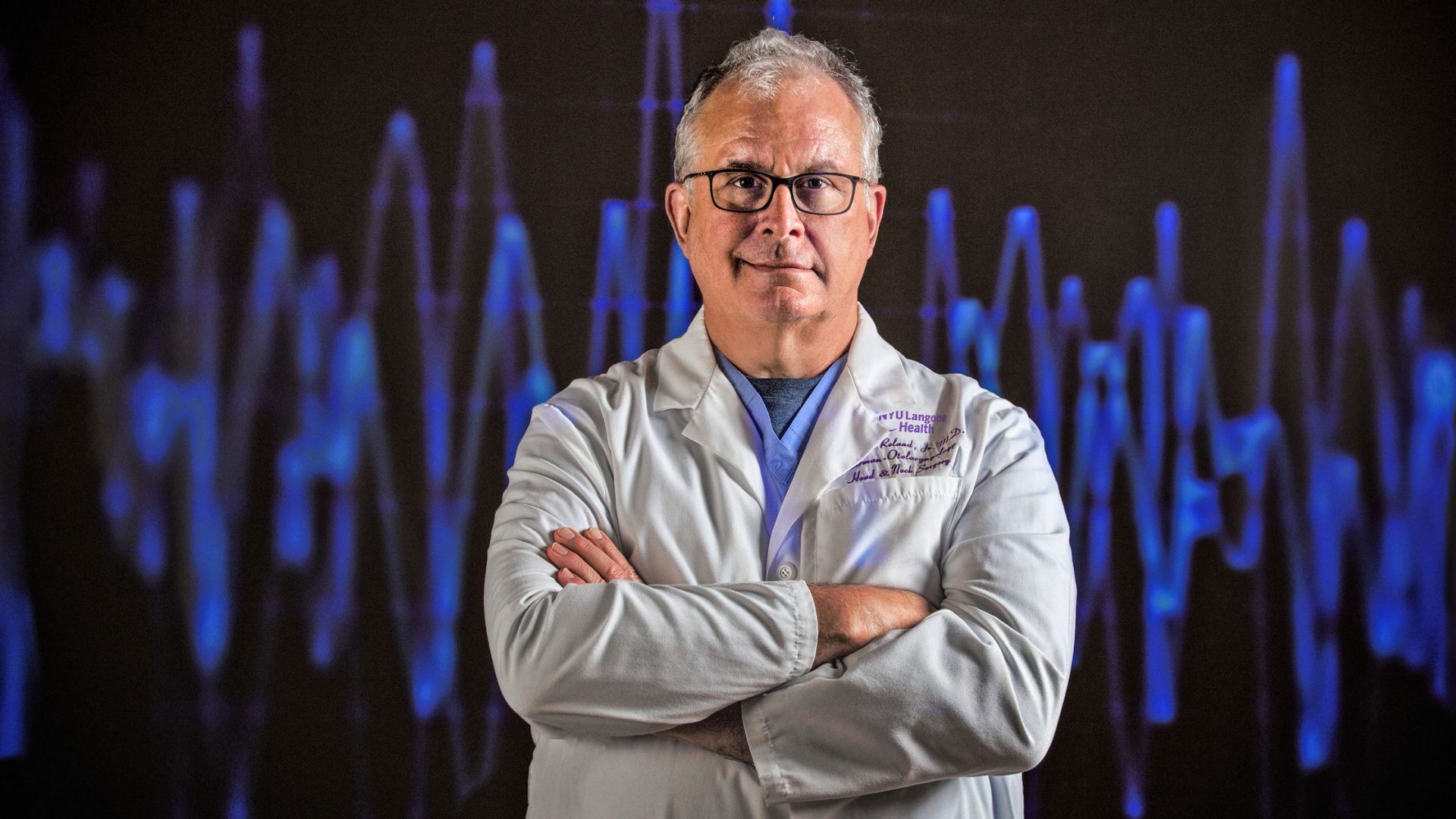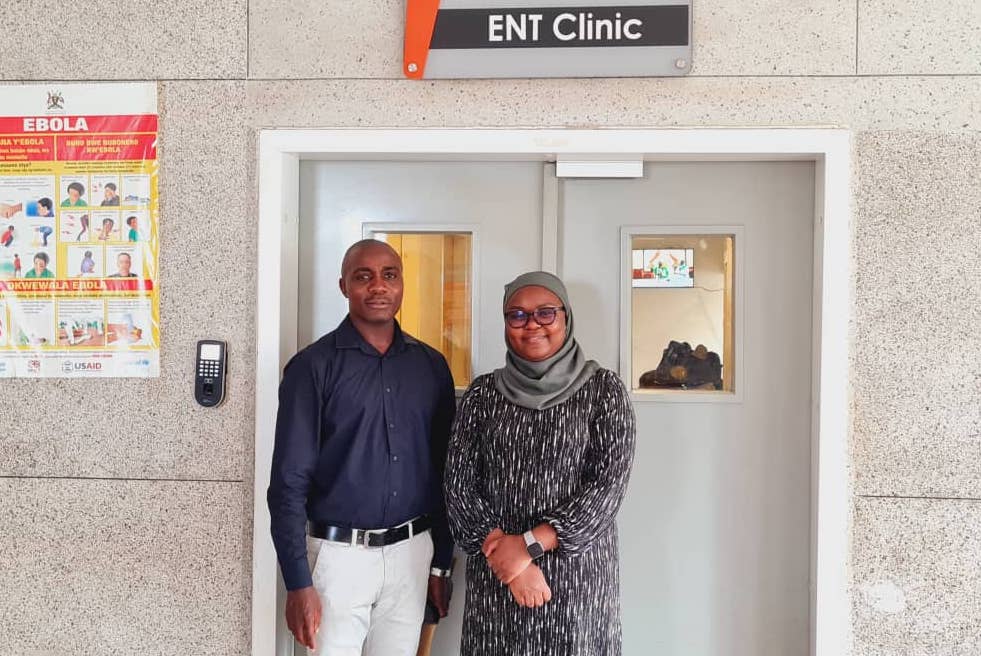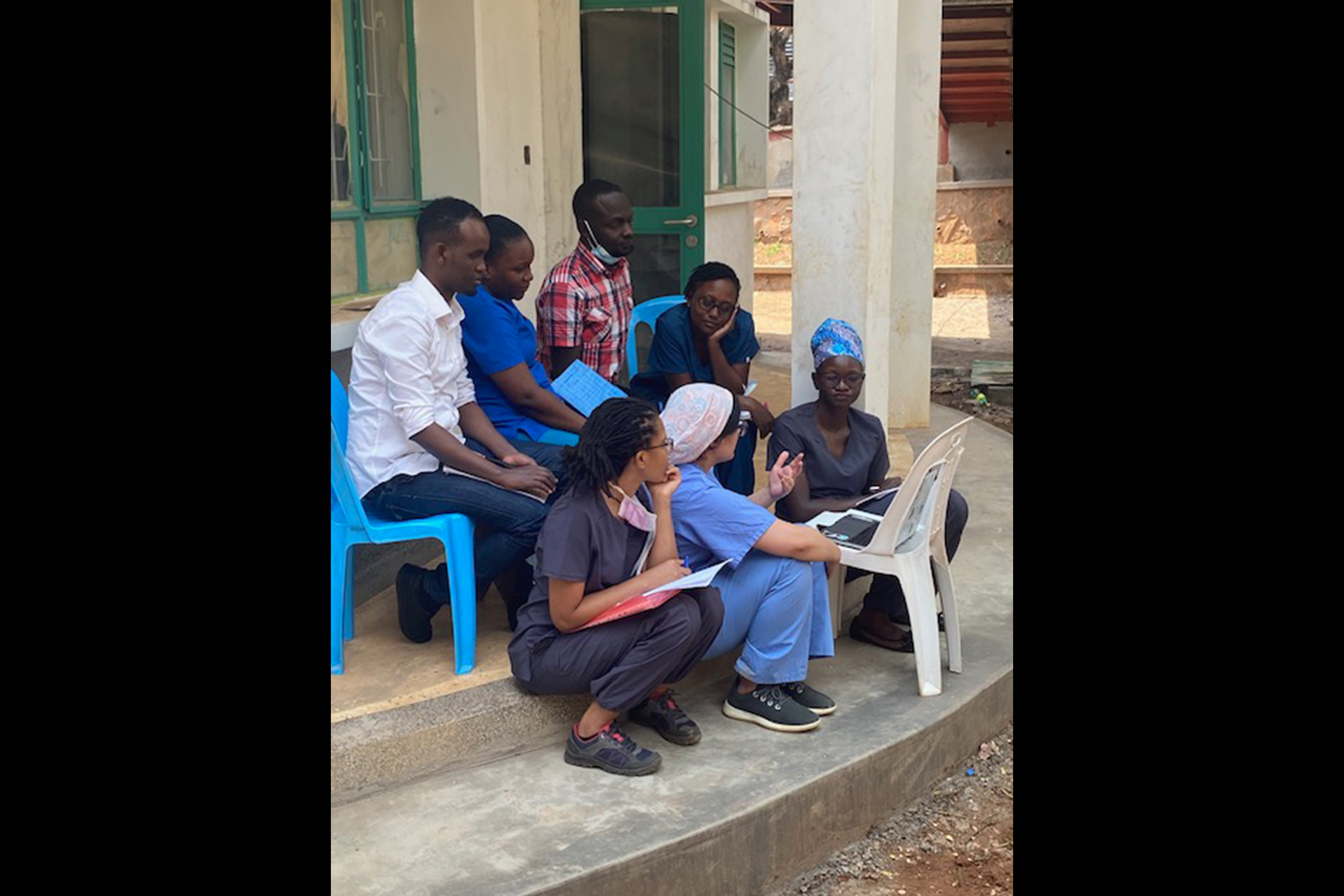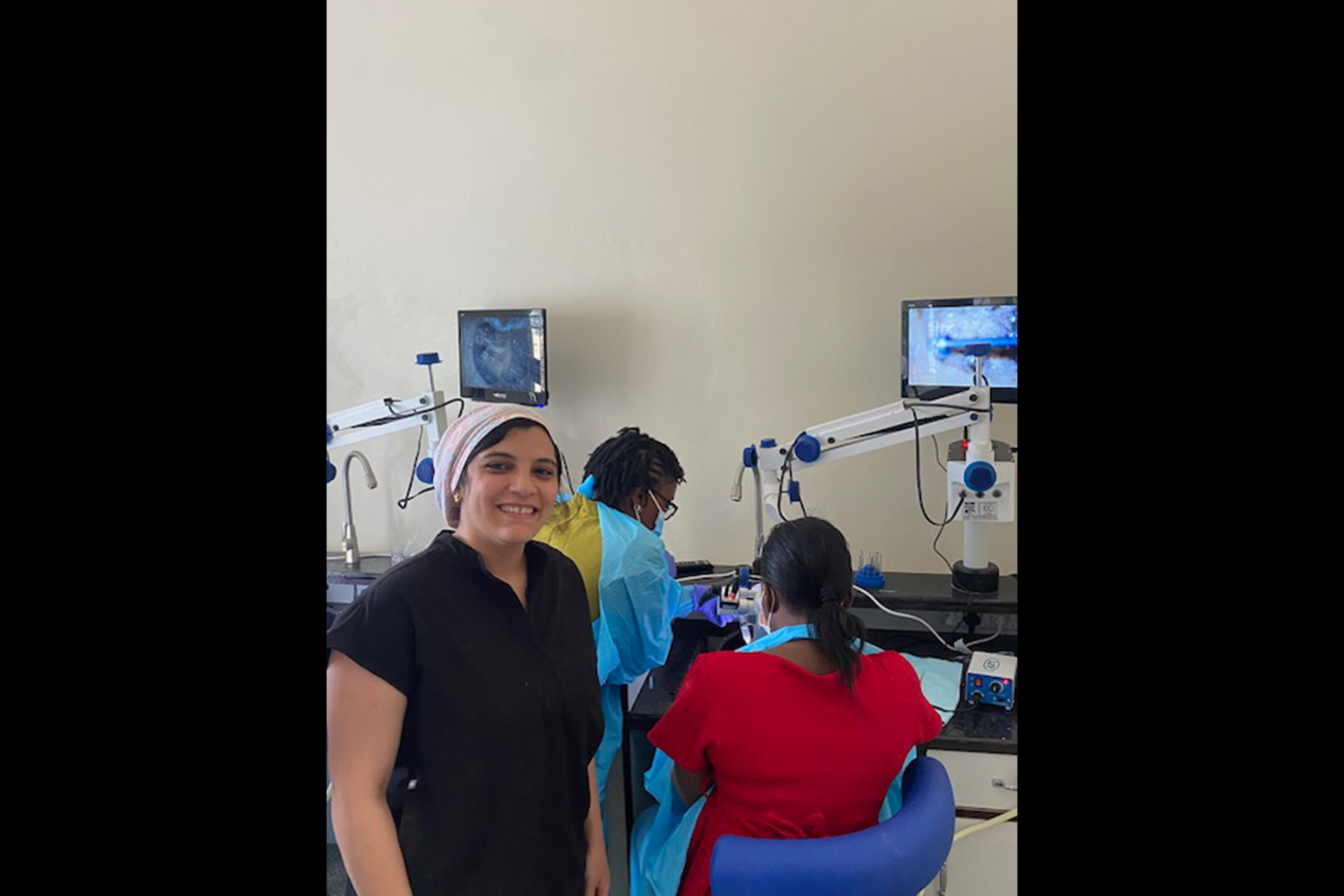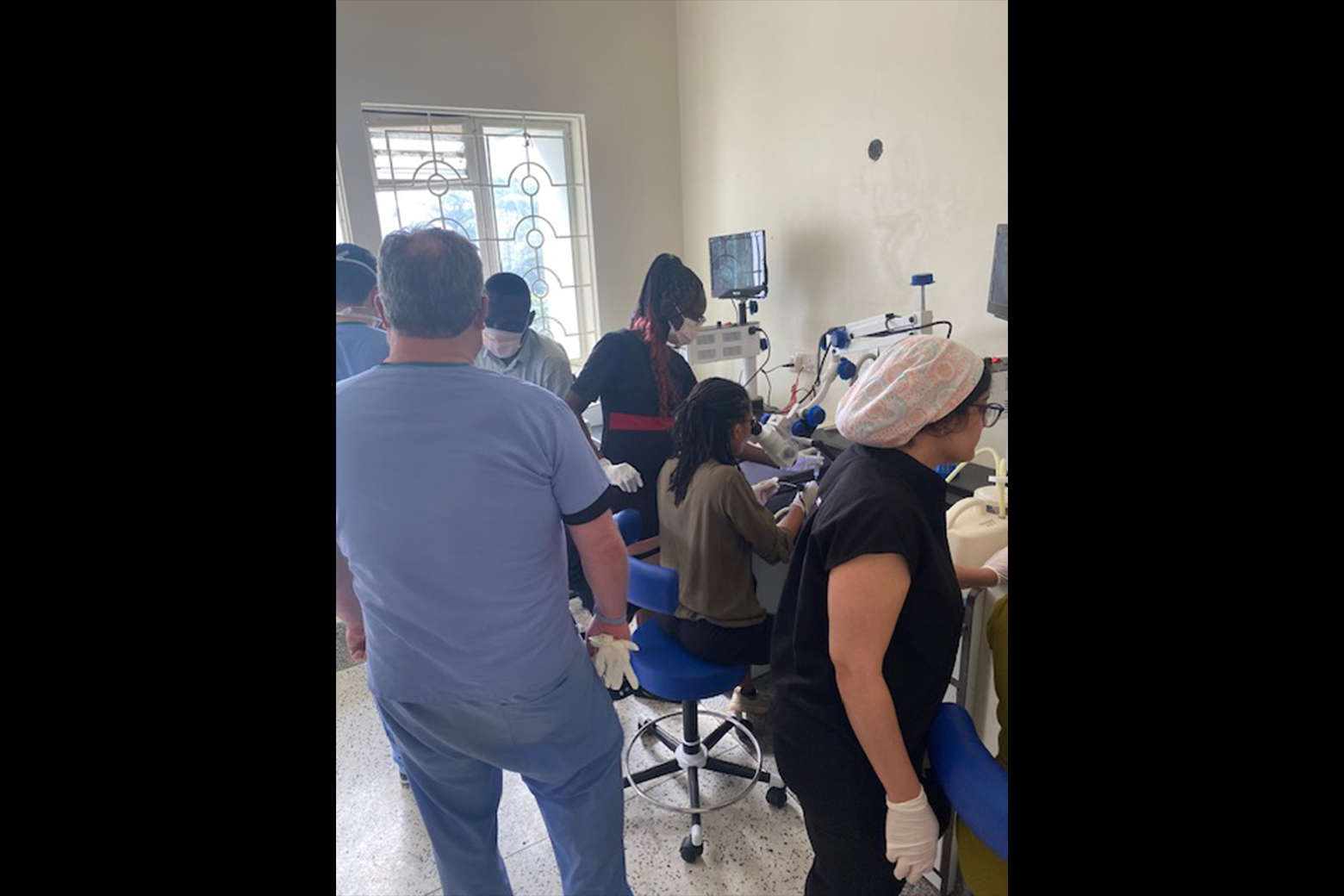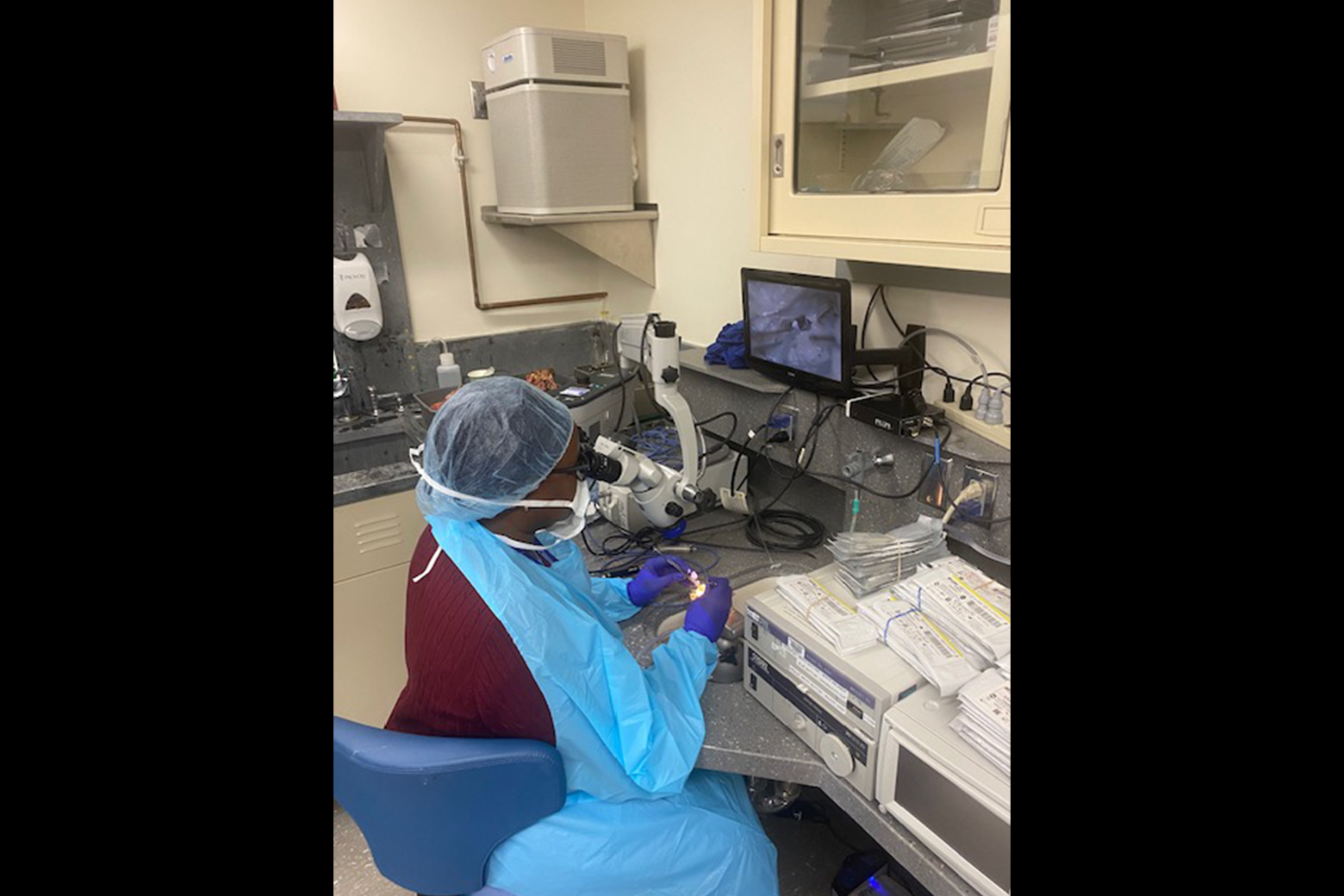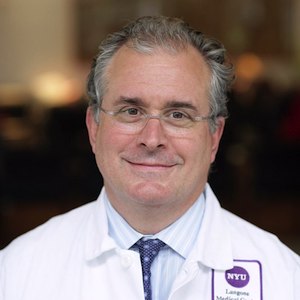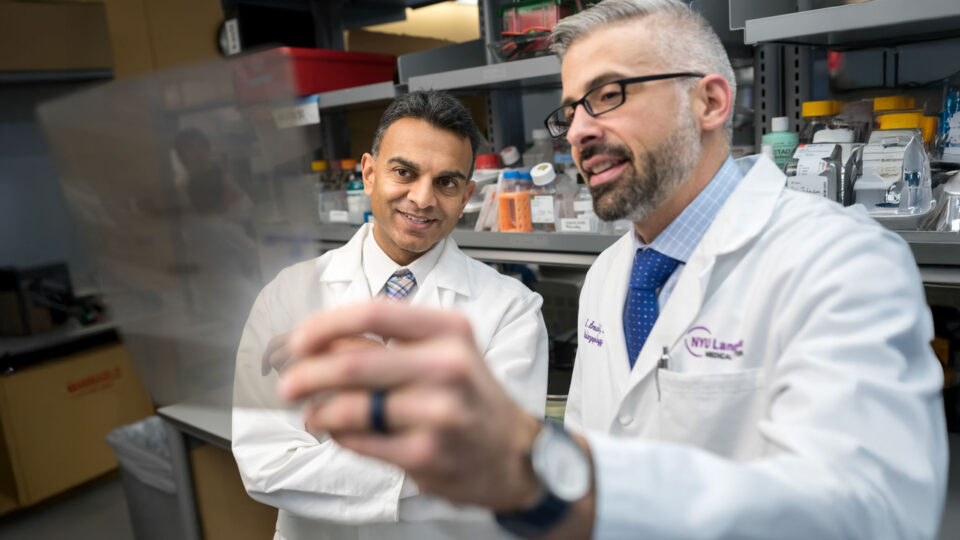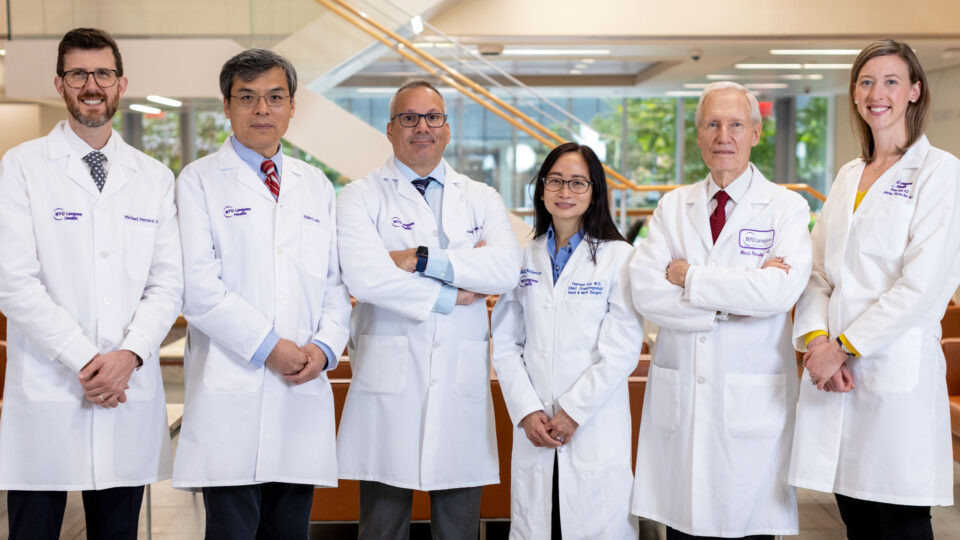J. Thomas Roland Jr., MD, is the Mendik Foundation Professor of Otolaryngology and recently ended a nearly 14-year tenure as chair of the Department of Otolaryngology—Head and Neck Surgery. Here, Dr. Roland discusses how he and his team built a sustainable program for ENT care in Uganda, a first of its kind for the region. Developed with NYU Langone colleagues including Sean O. McMenomey, MD, the now-18-year collaboration with trainees and faculty at Makerere University has provided the support to increase education, equipment and surgical expertise. As described by Ugandan colleagues Dr. Chris Ndoleriire, chair of the department at Makerere University, and Dr. Amina Seguya, attending otologist, “This project is all about capacity building in our country and it has proven to be highly successful.”
Dr. Roland continues to advocate for children with hearing loss by promoting awareness, providing education, and conducting research both abroad and in the diverse communities of New York City.
Hearing Loss: A Challenge in Uganda
Physician Focus: You’ve noted hearing impairment is a “silent epidemic” affecting millions in developing countries. As an otolaryngologist, how did you get started working in Uganda?
Dr. Roland: Many years ago, my wife was working in adolescent medicine for an organization that helped to rehabilitate rescued child soldiers in Northern Uganda and provide them with housing, food, and medical care, as well as an education.
While that organization no longer exists, it led me to connect with a local ENT specialist who had an interest in hearing. He knew a lot about the ears but lacked the resources to really treat ear disease and most hearing loss, and although he did have the ability to do limited testing for hearing impairment in his patients, screening on a large level was nearly impossible. I committed to help set up a program and during that initial time did not stop working—organizing the clinic, setting up equipment, reviewing cases, and performing surgery.
“Education is a key objective, so we focus on training local doctors to conduct hearing screenings and to perform ear surgery including cochlear implant surgery in children and adults.”
J. Thomas Roland Jr., MD
Since then, I’ve gone back numerous times. Education is a key objective, so we focus on training local doctors to conduct hearing screenings and to perform ear surgery including cochlear implant surgery in children and adults. I bring teams of NYU Langone faculty, residents, and fellows to assist with the work.
Designing a Sustainable Care Model
Physician Focus: Building a sustainable hearing loss screening and treatment program in a developing nation like Uganda is a formidable endeavour. How did you come up with the care model?
Dr. Roland: The care and training model was designed in accordance with our local residency program’s goals and objectives. At regular intervals, clinical teams from NYU Langone will fly over to give lectures, see patients, and perform surgeries with the local physicians. Moreover, we partner with the local organizations to carry out health promotion activities.
To be clear, it’s not about us flying over to provide treatment ourselves—we aspire to create sustainable capacity. Over the years, our footprint has grown tremendously and we’ve established infrastructure including a temporal bone laboratory and hearing rehabilitation center, as well as an outpatient surgery center. It’s astonishing to see how far we’ve come.
“It’s not about us flying over to provide treatment ourselves—we aspire to create sustainable capacity.”
In fact, the program has been such a success that we’ve begun to publish findings (for example about feasibility and implementation). We omitted our own names from the publications to keep the focus on the doctors in Uganda.
Breaking the Cycle of Dependency
Physician Focus: You’ve noted that your philosophy toward the unmet global need for hearing loss care is different than some nonprofits or nongovernmental organizations. Is the difference your focus on education and training?
Dr. Roland: Yes, our focus is on equipping local doctors to succeed in the clinic. In most cases, the Ugandan doctors are treating the patients and performing the operations—we’re essentially there to educate and supervise.
When I bring teams of young trainees from NYU Langone, I want them to realize that you don’t have to give a lot—all you have to do is give what you do each day. The Ugandan residents and fellows are exceptionally smart. All they need are competent teachers and equipment.
Physician Focus: Looking ahead, what are your plans for the future?
Dr. Roland: We plan to start a year-long fellowship, in which a resident from Uganda with an interest in otology will spend 1 month here to learn our processes and organization and 11 months in Uganda learning with supervision under the direction of a U.S.-trained neurotologist and two Ugandan otologists. They will go through a board exam, present cases, and carry out a research project. It’s another exciting opportunity for collaboration that has evolved out of our relationships with Ugandan peers.


